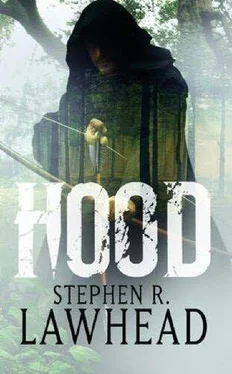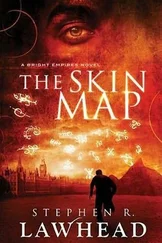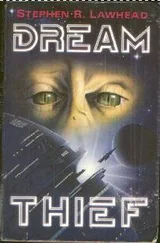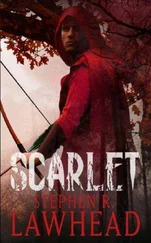Stephen Lawhead - Hood
Здесь есть возможность читать онлайн «Stephen Lawhead - Hood» весь текст электронной книги совершенно бесплатно (целиком полную версию без сокращений). В некоторых случаях можно слушать аудио, скачать через торрент в формате fb2 и присутствует краткое содержание. Жанр: Фэнтези, на английском языке. Описание произведения, (предисловие) а так же отзывы посетителей доступны на портале библиотеки ЛибКат.
- Название:Hood
- Автор:
- Жанр:
- Год:неизвестен
- ISBN:нет данных
- Рейтинг книги:4 / 5. Голосов: 1
-
Избранное:Добавить в избранное
- Отзывы:
-
Ваша оценка:
- 80
- 1
- 2
- 3
- 4
- 5
Hood: краткое содержание, описание и аннотация
Предлагаем к чтению аннотацию, описание, краткое содержание или предисловие (зависит от того, что написал сам автор книги «Hood»). Если вы не нашли необходимую информацию о книге — напишите в комментариях, мы постараемся отыскать её.
Hood — читать онлайн бесплатно полную книгу (весь текст) целиком
Ниже представлен текст книги, разбитый по страницам. Система сохранения места последней прочитанной страницы, позволяет с удобством читать онлайн бесплатно книгу «Hood», без необходимости каждый раз заново искать на чём Вы остановились. Поставьте закладку, и сможете в любой момент перейти на страницу, на которой закончили чтение.
Интервал:
Закладка:
Gerald painted a picture of the Cymry as a whole nation of warriors in arms. Unlike the Normans, who were sharply divided between the military aristocracy and a mass of peasants, every single Welshman was ready for battle at a moment's notice; women, too, bore arms and knew how to use them.
Within two months of the Battle of Hastings (1066), William the Conqueror and his barons, the new Norman overlords, had subdued 80 percent of England. Within two years, they had it all under their rule. However-and I think this is significant-it took them over two hundred years of almost continual conflict to make any lasting impression on Wales, and by that late date it becomes a question of whether Wales was really ever conquered at all.
In fact, William the Conqueror, recognising an implacable foe and unwilling to spend the rest of his life bogged down in a war he could never win, wisely left the Welsh alone. He established a baronial buffer zone between England and the warlike Britons. This was the territory known as the March. Later, this sensible no-go area and its policy of tolerance would be violated by the Conqueror's brutish son William II, who sought to fill his tax coffers to pay for his spendthrift ways and expensive wars in France. Wales and its great swathes of undeveloped territory seemed a plum ripe for the plucking, and it is in this historical context in the year AD 1093) that I have chosen to set Hood.
A Welsh location is also suggested by the nature and landscape of the region. Wales of the March borderland was primeval forest. While the forests of England had long since become well-managed business property where each woodland was a veritable factory, Wales still had enormous stretches of virgin wood, untouched except for hunting and hiding. The forest of the March was a fearsome wilderness when the woods of England resembled well-kept garden preserves. It would have been exceedingly difficult for Robin and his outlaw band to actually hide in England's ever-dwindling Sherwood, but he could have lived for years in the forests of the March and never been seen or heard.
This entry from the Welsh chronicle of the times known as Brenhinedd Y Saesson, or The Kings of the Saxons, makes the situation very clear:
Anno Domini MLXXXXV (1095). In that year King William Rufus mustered a host past number against the Cymry. But the Cymry trusted in God with their prayers and fastings and alms and penances and placed their hope in God. And they harassed their foes so that the Ffreinc dared not go into the woods or the wild places, but they traversed the open lands sorely fatigued, and thence returned home empty-handed. And thus the Cymry boldly defended their land with joy. (emphasis mine
That, I think, is the Robin Hood legend in seed form. The plucky Britons, disadvantaged in the open field, took to the forest and from there conducted a guerrilla war, striking the Normans at will from the relative safety of the woods-an ongoing tactic that would endure with considerable success for whole generations. That is the kernel from which the great durable oak of legend eventually grew.
Finally, we have the Briton expertise with the warbow, or longbow as it is most often called. While one can read reams of accounts about the English talent for archery, it is seldom recognized-but well documented-that the Angles and Saxons actually learned the weapon and its use from the Welsh. No doubt, the invaders learned fear and respect for the longbow the hard way before acquiring its remarkable potential for themselves.
As military historian Robert Hardy has observed, "The Welsh were the first people on the British Isles to have and use longbows. The Welsh became experts in the use of the longbow, and used the longbow very effectively in battles against the invading English." The Welsh repelled Ralph, Earl of Hereford, in 1055 using the longbow. There is a story about Welsh longbowmen penetrating a four-inch-thick, solid oak door with their arrows at the siege of Abergavenny Castle. Hardy goes on to say,
"Like the Welsh, the English learned an important lesson by fighting against the longbow. That lesson being that the longbow is a formidable weapon when used correctly. With the eventual defeat of the Welsh, and `alliance' of the English and Welsh, the English employed Welsh longbowmen in its own army. During this time, the English began a campaign to train their own longbowmen as well."
In his book Famous Welsh Battles, British historian Philip Warner writes:
"There were no easy victories over the Welsh. They were greatly esteemed and widely feared, whether fighting as mercenaries in the Middle Ages or engaging in guerrilla combat. From south Wales came a new weapon, the longbow, as terrifying as modern weapons of mass murder. Some 6 feet long and discharging an arrow 3 feet in length, averaging 12 arrows a minute, they blanketed a target like a dark, vengeful cloud. In the next moment all would be groans, screams and confusion."
Taken altogether, then, these clues of time, place, and weaponry indicate the germinal soil out of which Robin Hood sprang. As for the English Robin Hood with whom we are all so familiar… Just as Arthur, a Briton, was later Anglicised-made into the quintessential English king and hero by the same enemy Saxons he fought against -a similar makeover must have happened to Robin. The British resistance leader, outlawed to the primeval forests of the March, eventually emerged in the popular imagination as an aristocratic Englishman, fighting to right the wrongs of England and curb the powers of an overbearing monarchy. It is a tale that has worn well throughout the years. However, the real story, I think, must be far more interesting.
And so, in an attempt to centre the tales of this British hero in the time and place where I think they originated-not where they eventually ended up-I have put a British Rhi Bran, and all his merry band of friends and enemies, in Wales.
– Stephen Lawhead
ACKNOWLEDGMENTS
The author gratefully acknowledges the assistance of MieczysXaw Piotrowski and the cooperation of Jozef Popiel, Director of Biaiowieski National Park, Poland, who kindly allowed me to roam freely in the last primeval forest in Europe.
Many of the old Celtic words and names are strange to modern eyes, but they are not as difficult to pronounce as they might seem at first glance. A little effort-and the following rough guide-will help you enjoy the sound of these ancient words.
Consonants – As in English, but with the following exceptions:
c: hard – as in cat (never soft, as in cent)
ch: hard – as in Bach (never soft, as in church;
dd: a hard th sound, as in then
f. a hard v sound, as in of
ff. a soft f sound, as in off
g: hard – as in girl (never soft, as in George)
ll: a Gaelic distinctive, sounded as tl or hl on the sides of the tongue
r: rolled or slightly trilled, especially at the beginning of a word
rh: breathed out as if h-r and heavy on the h sound
s: soft – as in sin (never hard, as in his); when followed by a vowel it
takes on the sh sound
the soft – as in thistle (never hard, as in then)
Vowels – As in English, but generally with the lightness of short vowel sounds
a: short, as in can
a: slightly softer than above, as in awe;
e: usually short, as in met
e: long a sound, as in hey
is usually short, as in pin
is long e sound, as in see
o: usually short, as in hot
6: long o sound, as in woe
o: long o sound, as in go
u: usually sounded as a short i, as in pin;
u: long u sound as in sue
6: short u sound as in muck
w: sounded as a long u, as in hue; before vowels often becomes a soft
consonant as in the name Gwen
Читать дальшеИнтервал:
Закладка:
Похожие книги на «Hood»
Представляем Вашему вниманию похожие книги на «Hood» списком для выбора. Мы отобрали схожую по названию и смыслу литературу в надежде предоставить читателям больше вариантов отыскать новые, интересные, ещё непрочитанные произведения.
Обсуждение, отзывы о книге «Hood» и просто собственные мнения читателей. Оставьте ваши комментарии, напишите, что Вы думаете о произведении, его смысле или главных героях. Укажите что конкретно понравилось, а что нет, и почему Вы так считаете.







